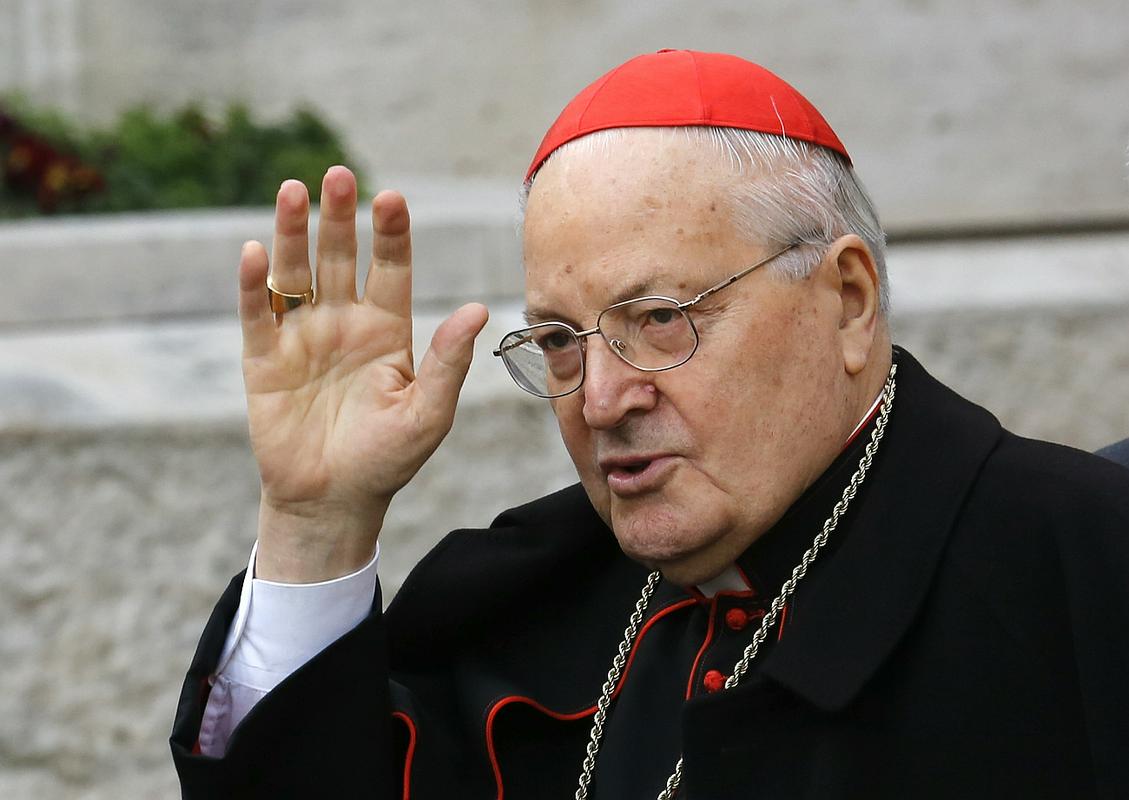Sodano spent his entire career in the Vatican’s diplomatic circles. He was the nuncio in Chile for a decade, and spent many years working on Eastern European and Balkan affairs. In the 1970s, he served as the Cardinal Agostino Casaroli’s right-hand-man. The Cardinal surreptitiously worked on establishing bonds between countries on the other side of the Iron Curtain and the Vatican, which was then led by the Polish Pope.
Sodano also has personal bonds to Slovenia. His father, Giovanni Sodano, later a deputy in the Italian Parliament, spent many years working in the Tolmin and Kobarid areas after World War I. These days, the 88-year-old Cardinal no longer has any official role in the Vatican administration, but the remains the Dean of the College of Cardinals.
Pope John Paul II officially named you Secretary of State five days after Slovenia declared its independence. What are your personal recollections of this time?
It’s true that I was named Secretary of State on June 29, 1991, on the Feast of Saints Peter and Paul, but I had already studied the Balkans and Eastern Europe while still working for Secretary of State Casaroli. I then spent ten years as the apostolic nuncio in Chile, after which I again focused on Eastern Europe and the Balkans, whose countries were just beginning their journeys toward freedom.
I remember going to Moscow was early as October 1989, because the Holy See was establishing new diplomatic relations at the moment; we were also preparing Gorbachov’s meeting with the Pope at the Vatican, which then took place on December 1, 1989.
I paid particularly close attention to the restless situation in Yugoslavia. The Good Lord created nations to be free; they had the right to liberty, and the only thing the Holy See could do is to help them – and the international community – was to ensure that everything would happen peacefully. This wasn’t always possible, but it was the goal of the Holy See.
We know that Slovenia’s road to recognition wasn’t easy and that doubts were frequently expressed in Europe. How did the Holy See’s position evolve over time?
For Pope John Paul II, things were very clear. The legal basis was unambiguous. The constitution that Yugoslavia adopted after the fall of Nazism -- at the beginning of its existence -- foresaw the right of republics to break away if they wanted to. This served as an important legal foundation. In other cases, the legal right to secession wasn’t as clear. And if this was the legal basis, the Holy See was obliged to respect the right of the nations to become independent; neither John Paul II nor we, the members of his team, had any doubts about this.
In my humble opinion, the opposition of European countries and, to a certain extent, the U.S., was based on the fact that they didn’t know the history of the Balkans nor the legal situation that was characteristic of Yugoslavia. The Holy see decided to go is own way without taking heed of contrary opinions, which always exist in international law. This path was blazed by a Pope who will go down in history as one of the founding fathers of the New Europe.
We know that John Paul II played a major role in this process. What personal convictions and views led him to his decisions?
His positions, his formative years, his studies, and his nationality all led him to believe that nations don’t die out, that nations can’t die. He frequently cited Pope Benedict XV, who had stated after World War I that nations don’t die. He even jokingly told various ambassadors that nations don’t just die; we Poles will always be Poles, you Germans will always be Germans, and the Italians will always be Italians. Because national identity must be respected. The concept of Europe was always a powerful guiding force for him -- Europe that is really Europe, not just central or eastern Europe, but a continent that stretches from the Atlantic to the Urals. He was inspired by a vision of freedom, combined with the concept of cooperation.
How do you see Slovenia today? What do you think of its development and the road it has traveled since 1991?
I congratulate the Slovenian nation, whose character is reflected in its leaders, in the shepherds of our dioceses, in schools and universities, and in cultural associations. This is the beauty of a nation that moved step by step – albeit sometimes following a zigzags route – to independence and now works closely with other European countries. I personally follow – albeit from afar – the life of the six dioceses that exist in Slovenia today, mostly the archdioceses in Ljubljana and Maribor, as well as the smaller dioceses that are bound to them. I’m also in touch with the Apostolic Nunciature, which is led by the dear Nuncio Julusz Janusz, and the embassy to the Republic of Slovenia at the Holy See, with which I’ve had a warm relationship under all ambassadors up to and including the current one, Tomaž Kunstelj. I retain precious memories and today, I wish all of Slovenia a happy 25th anniversary of independence and further development, both material and spiritual. “May it render unto God the things that are God’s, and to Caesar the things that are Caesar’s.”
Mojca Širok, RTV Slovenija’s Correspondent in Rome; Translated by J. B.


































































